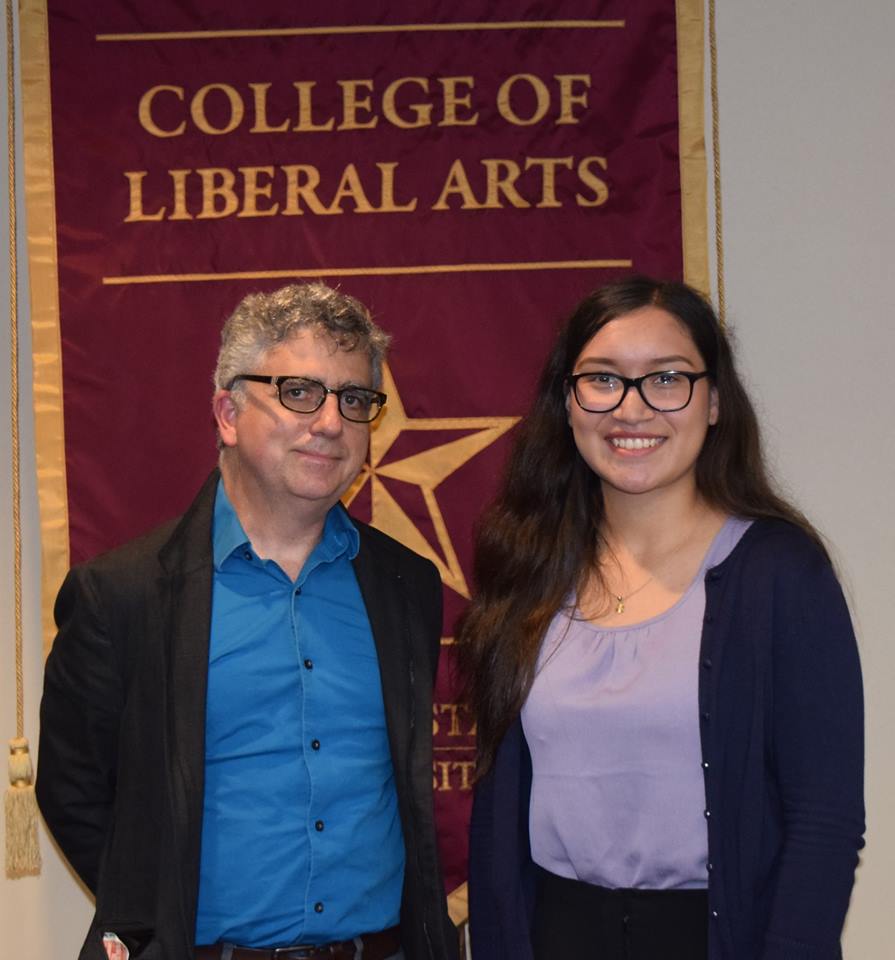
Isabel Lozoya’s essay, Anglo-American Ethnocentric Mis-Perceptions of Mexico in the First International Study of Sex Trafficking, 1924-1926, won the inaugural Aleyda Gonzalez Mckiernan Undergraduate Essay in Southwestern Studies. The committee found the essay noteworthy for its contribution to the study of the southwest, the quality of archival evidence, as well as the connection to ongoing politics at the U.S. Mexico border.
Her theme – the difficult fit between anti-trafficking League of Nation based reformers and the complicated labor situations in three cities close to the U.S. Mexico border – fit directly into ongoing discussions of border controls as well as pushing toward a more cross-border understanding of the Southwest. The time and attention the essay gave the records and the reports generated during the League of Nations investigation of underground economies in three key border cities moved this essay to the fore. The care the paper took in elaborating the multiple contexts for the investigation into coerced intimate labor added an important dimension to your analysis. Ultimately, understanding the dynamics of anti-trafficking efforts in the past can only add an important historical dimension to our current debates over labor mobility and state border control.
We asked Isabel Lozoya what prompted her to begin this research project:
John Mckiernan-Gonzalez: First, what prompted you, besides taking a class with Dr. Pliley on Human Trafficking, to research the conditions that brought about the League of Nations report on trafficking in northern Mexican cities.
Isabel Lozoya: I have been interested in human trafficking after learning about the prevalence of the crime in Texas. I volunteered for an organization, United Against Human Trafficking, in Houston in 2018 and I learned a lot, but I wanted to know more. I knew that by taking the class I would be introduced to the academic perspective of the crime and I would have readings related to it. The class was a history class and we had historical readings. When we were assigned to read the report created by the League of Nations, I noticed many impertinent qualities of the content. I tried to contextualize the behavior, but the reporter’s actions were too important to disregard. I believed the report to be of great historical importance because it was one of the first reports done at that scale at the time. It set an example for future data gathering endeavors but showed many situations that could be improved. I focused on their portrayal of people from southern American states and northern Mexican cities as subhuman and often viewed as threats to the general American population. I was interested in the work because I found similar ideologies represented in modern American politics, especially with the activism that exists to build the wall. Although the argument may have gained powerful momentum recently it has been present for many decades.
John Mckiernan-Gonzalez: Second, what do you remember most about the research and writing process that you think you will carry with you in further endeavors.
Isabel Lozoya: I wanted to analyze a report and found out it was more difficult than I expected. After my research of the League of Nations reports and similar works, I realized the importance but difficulties regarding collection of data. It is difficult to obtain data from certain areas because people will often interpret it as a generalization. It is important to obtain information from various sources to ensure the legitimacy of the information. I also realized the value of collecting data in a thorough manner without qualitative or quantitative generalizations. I wanted to point out the flaws, but I was using 21st century thinking to evaluate a report conducted in the 20th century. I considered some terms the reporters used as offensive based on 21th century standards, although they could have been considered common at the time. This realization enforced the belief that people should always be treated with respect when conducting research.
